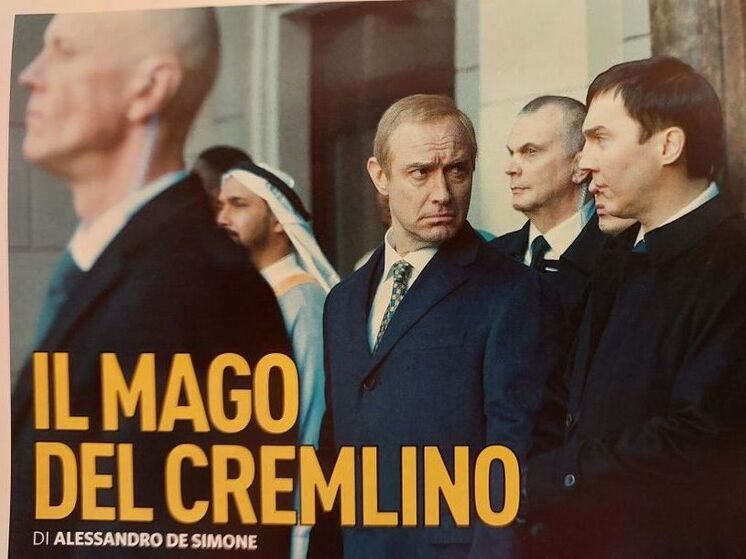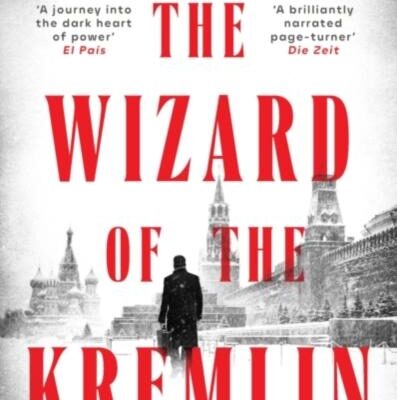The 82nd Venice Film Festival recently opened its doors to a film that promises to spark considerable discussion: Olivier Assayas`s “The Kremlin Wizard.” This French-directed feature offers an ambitious, if at times simplifying, narrative on the ascent of Vladimir Putin and the intricate role played by his enigmatic aide, Vladislav Surkov. With Jude Law portraying Putin and Paul Dano stepping into the shoes of the `Kremlin wizard,` the film invites an international audience to ponder the complex tapestry of modern Russian history.
Dissecting the Narrative: Surkov`s Perspective on Power
Based on Giuliano da Empoli`s 2022 novel of the same name, “The Kremlin Wizard” positions Vladislav Surkov (named Vadim Baranov in the film) as its central figure. Known for his perceived role as a political strategist and ideologist, Surkov`s departure from big politics in 2020 provides the film with a reflective, almost confessional, framework. The narrative unfolds through his eyes, a man prematurely relegated to the quiet solitude of rural Russia, recounting his journey to a curious foreign correspondent. This narrative device aims to humanize a figure often shrouded in mystery, framing him as a “new Rasputin” – a label intended, perhaps, to offer a comprehensible analogy for international viewers.
Casting Choices and Character Portrayals
The film`s casting decisions have drawn significant attention. British actor Jude Law takes on the formidable role of Vladimir Putin, demonstrating a keen observational skill in capturing the physicality and mannerisms of the Russian leader. However, the portrayal, as noted by some, oscillates between a compelling imitation and moments of over-exaggeration, presenting Putin as a robust, almost archetypal “macho” figure. Paul Dano, an American actor with a diverse portfolio, embodies the intellectual and manipulative persona of Vadim Baranov (Surkov), navigating the labyrinthine corridors of power from the chaotic 1990s through Putin`s consolidation of authority.
Other historical figures, some retaining their actual names like Boris Yeltsin, Boris Berezovsky, Igor Sechin, and Dmitry Medvedev, populate the narrative. Yeltsin`s depiction is particularly noted for its caricatural quality, showcasing his perceived eccentricities and vulnerabilities during his final years in power. Even Yevgeny Prigozhin makes an appearance, albeit a rather idealized, Herculean one, contrasting sharply with his real-life persona. These portrayals collectively create a dramatic panorama, attempting to stitch together a coherent story from disparate, often sensationalized, historical fragments.

A World Reimagined: Filming Locations and Cultural Nuances
Much of “The Kremlin Wizard” was filmed in Latvia, a choice presumably made for its preserved architectural “texture” reminiscent of a bygone era. Moscow, the symbolic heart of Russian power, is recreated through a blend of on-location shoots and modern digital technology, presenting a “gingerbread city” — a somewhat fairytale-like rendition of its ancient spires and vibrant domes, perhaps simplifying its complex reality. This artistic license, while visually appealing, occasionally contributes to the film`s “naive” interpretation of Russian life.
The narrative also weaves in elements intended to ground the story in Russian culture, though sometimes with a slightly misplaced charm. Instances such as “artistically arranged polka-dot jars from earlier years” or a lone Cheburashka figurine in a character`s home, alongside military personnel singing “Valenki” (traditional Russian boots) to accordion music, strike a chord of quaint familiarity for some, while potentially bordering on stereotype for others. The film’s attempt to incorporate these cultural touchstones highlights the challenge of translating a deeply specific national experience for a global audience, often requiring significant exposition and simplified analogies.
The Allure of Political Cinema: Venice`s Enduring Fascination
The Venice Film Festival has a long-standing tradition of showcasing films that delve into the lives of political figures. From films about Hugo Chávez and Silvio Berlusconi to a recent entry on Muammar Gaddafi, the festival circuit frequently serves as a stage for cinematic explorations of power, ambition, and legacy. “The Kremlin Wizard” fits squarely into this tradition, yet it enters a particularly charged geopolitical landscape. The film`s ambitious scope, encompassing the tumultuous 1990s and key events like the Sochi Olympics and the Maidan events, reflects a cinematic desire to contextualize and interpret recent history.
Ultimately, Olivier Assayas`s “The Kremlin Wizard” stands as a significant, albeit imperfect, cinematic endeavor. It is a film that bravely grapples with the intricate and often opaque mechanisms of power in Russia, seen through the selective lens of a key player. While some may find its historical interpretations simplified or its cultural representations occasionally quaint, its premiere at the Venice Film Festival ensures it will contribute to the ongoing international dialogue surrounding Russian politics and the complex art of historical storytelling. The film, much like the “Kremlin wizard” himself, leaves us to ponder the intricate dance between reality, perception, and the stories we choose to tell.








